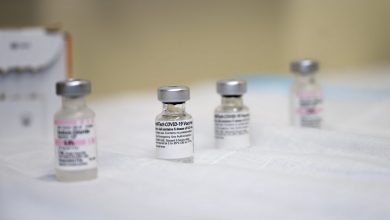HKU Faculty of Medicine: FAQs about surgical masks
As COVID-19 novel coronavirus are raging, surgical masks are in short supply. Questions about masks from the public are also rising. Are the self-made masks useful? Professor Ivan Hung, LKS Faculty of Medicine at the University of Hong Kong, will share advices and facts on surgical masks with you.
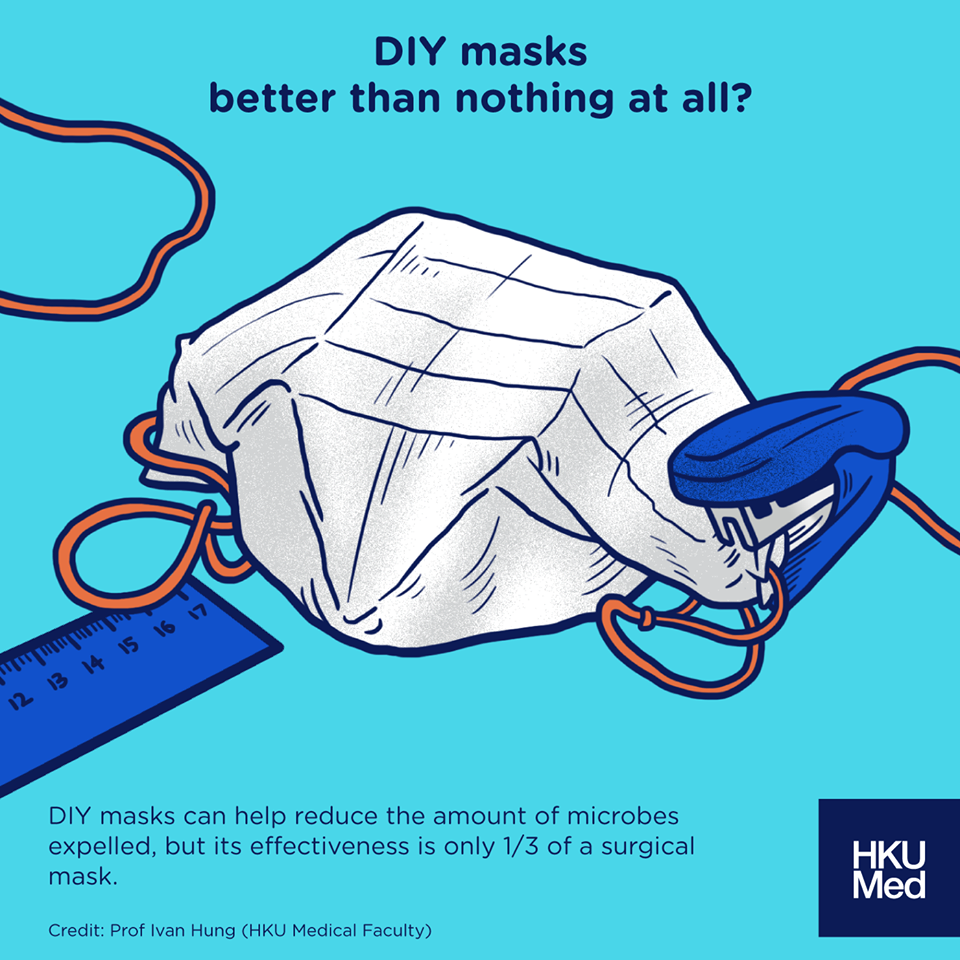
Q1. DIY masks – Better than nothing at all?
A: According to a study on influenza by the Public Health England (PHE), surgical masks and homemade masks are both able to prevent transmission of microbes expelled from cough or sneeze, but the effectiveness of homemade masks are only one-third of a proper surgical mask. DIY masks should hence be only considered as a last resort, while the best method of hygiene protection and disease prevention is to avoid going out if you do not have a surgical mask.
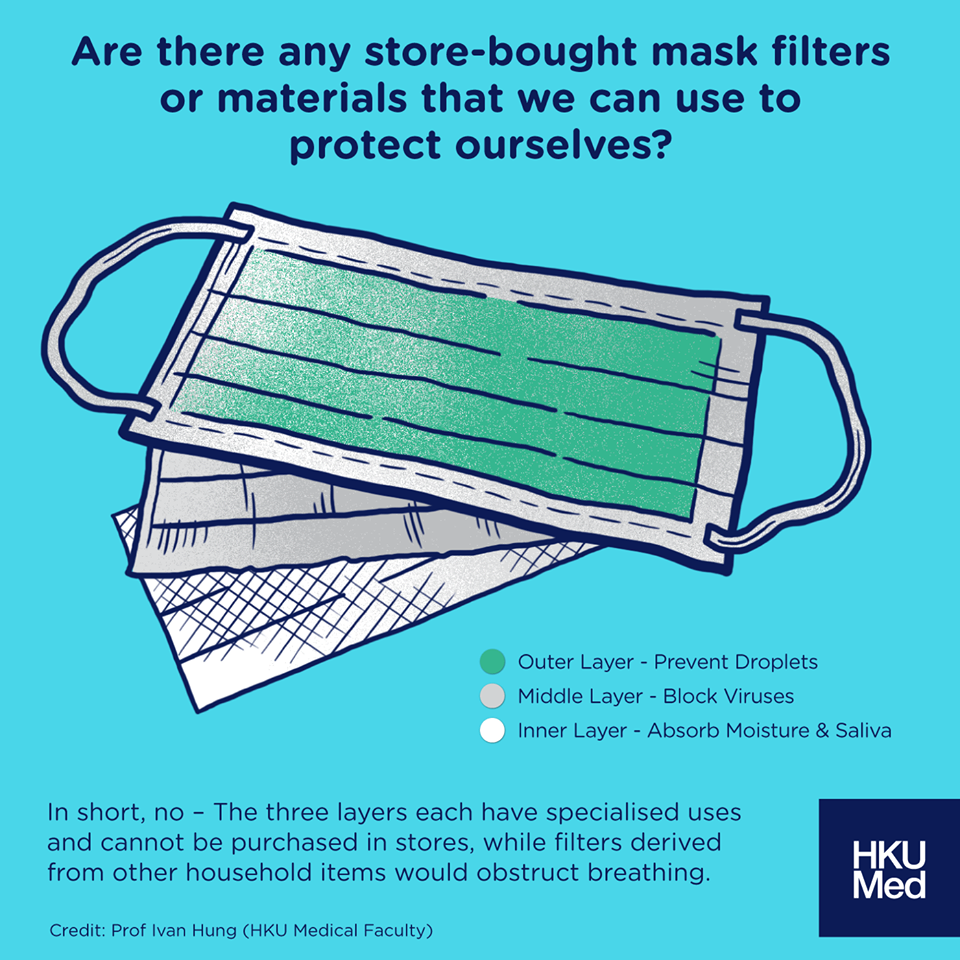
Q2. Are there any store-bought mask filters or materials (like air-conditioning filters) that we can use to protect ourselves?
A: Surgical masks typically consist of three separate layers, each with distinct uses:
◾ Outer layer: water resistant non-woven fabric that prevents droplets from seeping in
◾ Middle layer: electrostatic filter layer that consists of melt-blown material that acts as a filter, preventing microbes from entering or exiting the mask
◾ Inner layer: absorbent non-woven fabric that forms a barrier for moisture and saliva
In theory, filters used in air-conditioning or vacuum cleaners are both able to achieve high level of filtration. However, due to the high density of these materials, it is not fit for use in DIY face masks as breathing will be severely obstructed.
On the other hand, filters used for surgical masks should at least filter P2.5 particles (particulate matter that is 2.5 micrometers in diameter and smaller). Materials that reach this requirement are simply not available on the mass market, making it difficult for homemade masks to achieve comparable filtration efficacy to surgical masks.
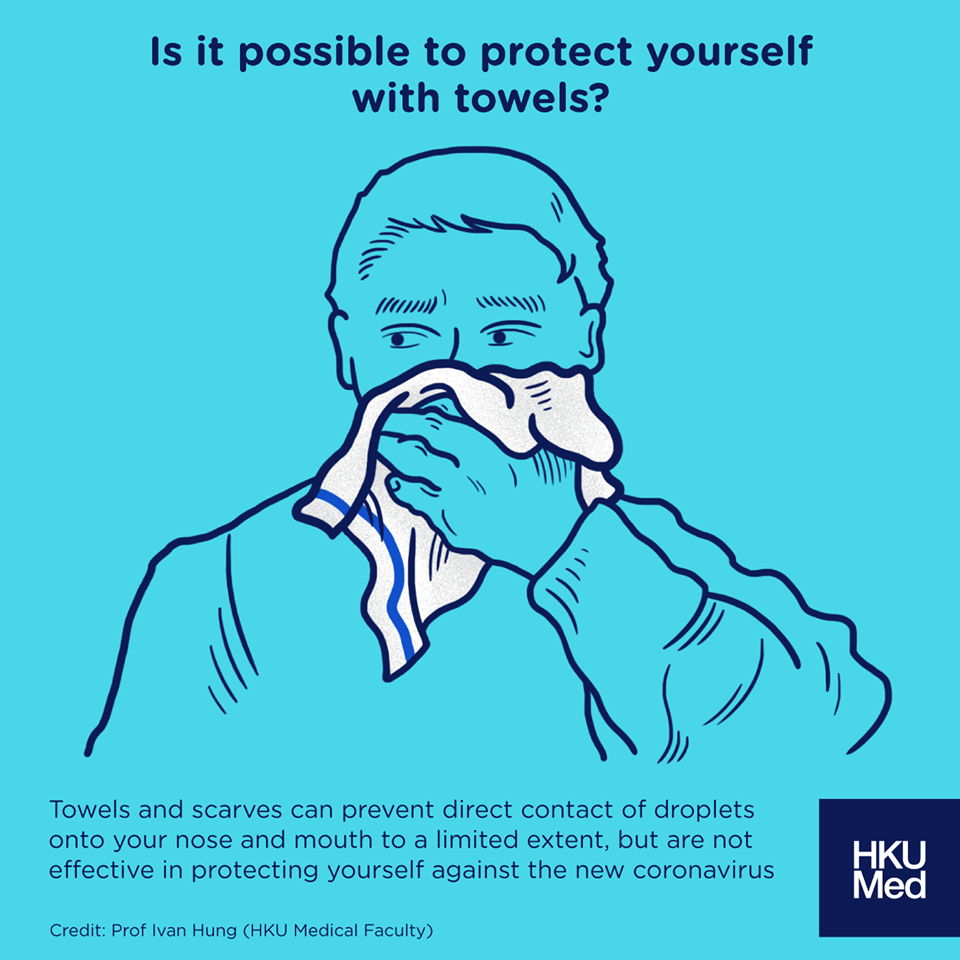
Q3. Is it possible to protect yourself by covering your nose and mouth with towels or scarves?
A: Towels and scarves can prevent direct contact of droplets with your nose and mouth to a limited extent, but are not effective in protecting against the new coronavirus as it is simply not dense enough. In addition, these apparel items must be sanitised with high heat on a daily basis in order to maintain hygiene.
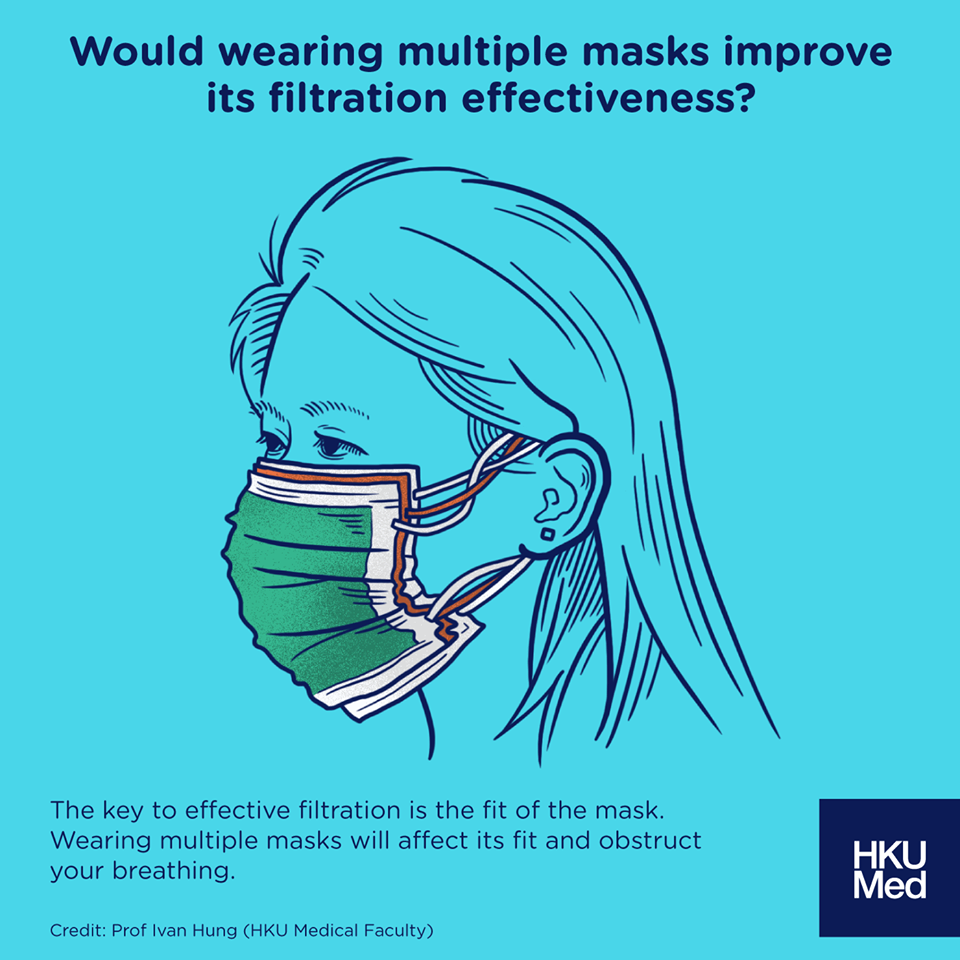
Q4. Would wearing multiple masks improve its filtration effectiveness?
A: The key to effective filtration is the fit of the mask – wearing multiple masks will not result in an exponential increase in protection, but rather it will affect the fit of the mask on your face, and further obstruct your breathing.
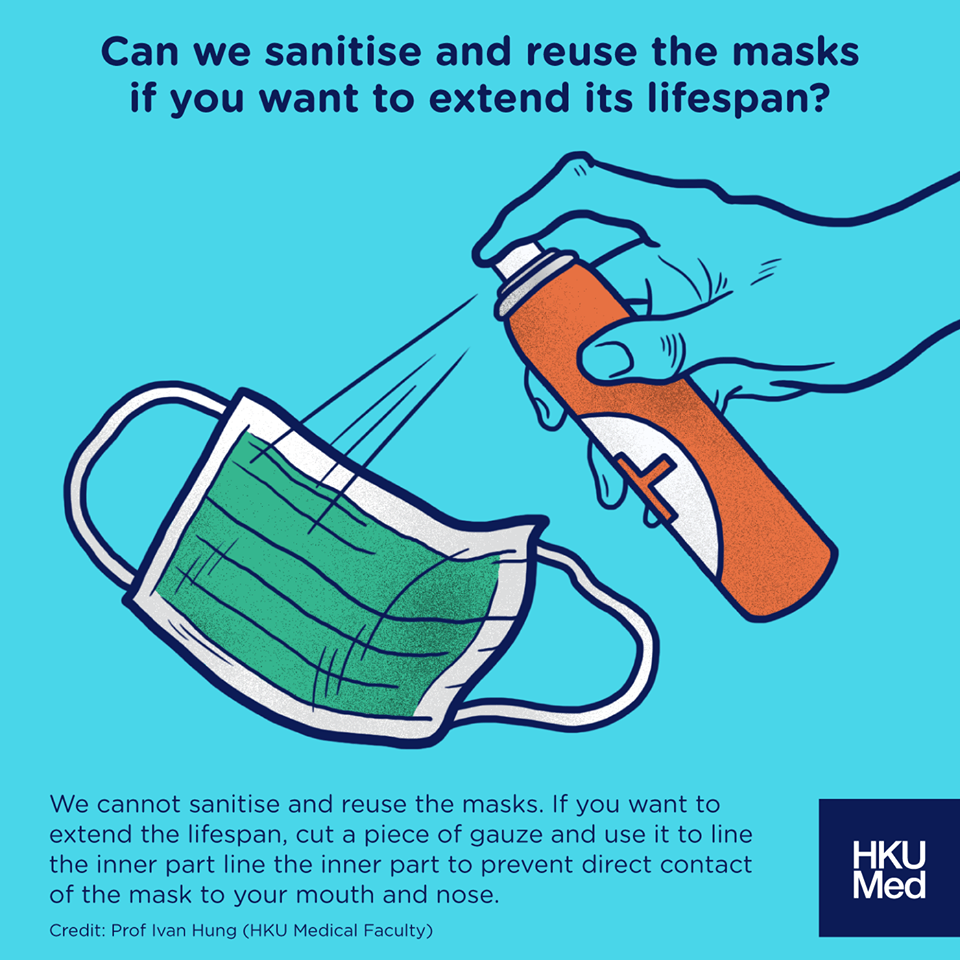
Q5. Can surgical masks be sanitised and reused?
A: There is currently no evidence to suggest the viability of sanitising and reusing disposable surgical masks. Moisture from hot steam or rubbing alcohol will damage non-woven layers and the filter layer of face masks, while bacteria and viruses cannot be eliminated by way of sun-drying. In short, we do not suggest reusing surgical masks.
Surgical masks should only be used for a maximum of eight hours. If you want to extend its lifespan, it is best to avoid direct contact of the mask with your mouth and nose – this will help reduce the amount of moisture that is absorbed by the mask. You can do so by cutting a piece of gauze to size with the surgical mask, and line the inner part of the mask. Make sure to also change the gauze every four hours for hygiene.


